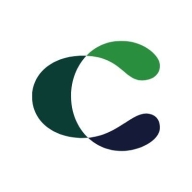

Contrast Security Assess and Mend.io are competing solutions in software security, each offering unique strengths. Contrast Security Assess has an edge with specialized detection capabilities, while Mend.io stands out for its comprehensive features and user-friendly integration.
Features: Contrast Security Assess delivers in-depth security insights with real-time vulnerability detection, offers notable support options, and excels in niche detection capabilities. Mend.io integrates seamlessly with various development tools, handles complex workflows efficiently, and provides a robust feature set catering to specific user needs.
Room for Improvement: Contrast Security Assess could enhance its reporting functionalities, refine intuitive reporting, and expand its feature set beyond niche applications. Mend.io users seek faster software updates, improved integration capabilities, and enhanced detail in support documentation.
Ease of Deployment and Customer Service: Contrast Security Assess is valued for a straightforward deployment process and attentive customer service, offering personalized support during transitions. Mend.io provides a quick setup with ample support, though it may occasionally lack the desired level of detail.
Pricing and ROI: Contrast Security Assess clients view it as cost-effective with substantial long-term ROI, appreciating favorable setup costs. Mend.io, though noted for higher initial costs, is recognized for delivering significant ROI through its comprehensive features, affirming its value over time.
| Product | Market Share (%) |
|---|---|
| Mend.io | 3.0% |
| Contrast Security Assess | 1.0% |
| Other | 96.0% |

| Company Size | Count |
|---|---|
| Small Business | 2 |
| Midsize Enterprise | 3 |
| Large Enterprise | 6 |
| Company Size | Count |
|---|---|
| Small Business | 10 |
| Midsize Enterprise | 3 |
| Large Enterprise | 20 |
Contrast Security is the world’s leading provider of security technology that enables software applications to protect themselves against cyberattacks, heralding the new era of self-protecting software. Contrast's patented deep security instrumentation is the breakthrough technology that enables highly accurate assessment and always-on protection of an entire application portfolio, without disruptive scanning or expensive security experts. Only Contrast has sensors that work actively inside applications to uncover vulnerabilities, prevent data breaches, and secure the entire enterprise from development, to operations, to production.
Mend.io is a software composition analysis tool that secures what developers create. The solution provides an automated reduction of the software attack surface, reduces developer burdens, and accelerates app delivery. Mend.io provides open-source analysis with its in-house and other multiple sources of software vulnerabilities. In addition, the solution offers license and policy violation alerts, has great pipeline integration, and, since it is a SaaS (software as a service), it doesn’t require you to physically maintain servers or data centers for any implementation. Not only does Mend.io reduce enterprise application security risk, it also helps developers meet deadlines faster.
Mend.io Features
Mend.io has many valuable key features. Some of the most useful ones include:
Mend.io Benefits
There are many benefits to implementing Mend.io. Some of the biggest advantages the solution offers include:
Reviews from Real Users
Below are some reviews and helpful feedback written by PeerSpot users currently using the Mend.io solution.
Jeffrey H., System Manager of Cloud Engineering at Common Spirit, says, “Finding vulnerabilities is pretty easy. Mend.io (formerly WhiteSource) does a great job of that and we had quite a few when we first put this in place. Mend.io does a very good job of finding the open-source, checking the versions, and making sure they're secure. They notify us of critical high, medium, and low impacts, and if anything is wrong. We find the product very easy to use and we use it as a core part of our strategy for scanning product code moving toward release.”
PeerSpot reviewer Ben D., Head of Software Engineering at a legal firm, mentions, “The way WhiteSource scans the code is great. It’s easy to identify and remediate open source vulnerabilities using this solution. WhiteSource helped reduce our mean time to resolution since we adopted the product. In terms of integration, it's pretty easy.”
An IT Service Manager at a wholesaler/distributor comments, “Mend.io provides threat detection and an excellent UI in a highly stable solution, with outstanding technical support.”
Another reviewer, Kevin D., Intramural OfficialIntramural at Northeastern University, states, "The vulnerability analysis is the best aspect of the solution."
We monitor all Application Security Tools reviews to prevent fraudulent reviews and keep review quality high. We do not post reviews by company employees or direct competitors. We validate each review for authenticity via cross-reference with LinkedIn, and personal follow-up with the reviewer when necessary.